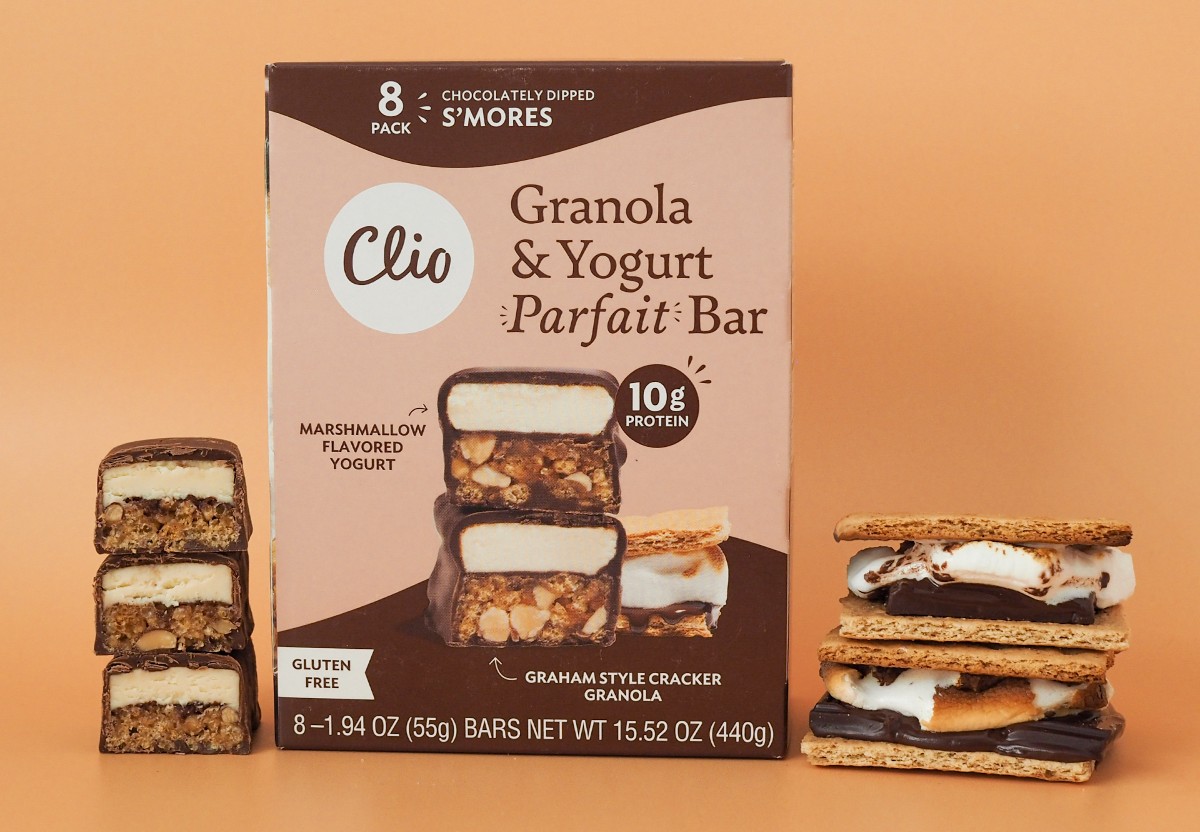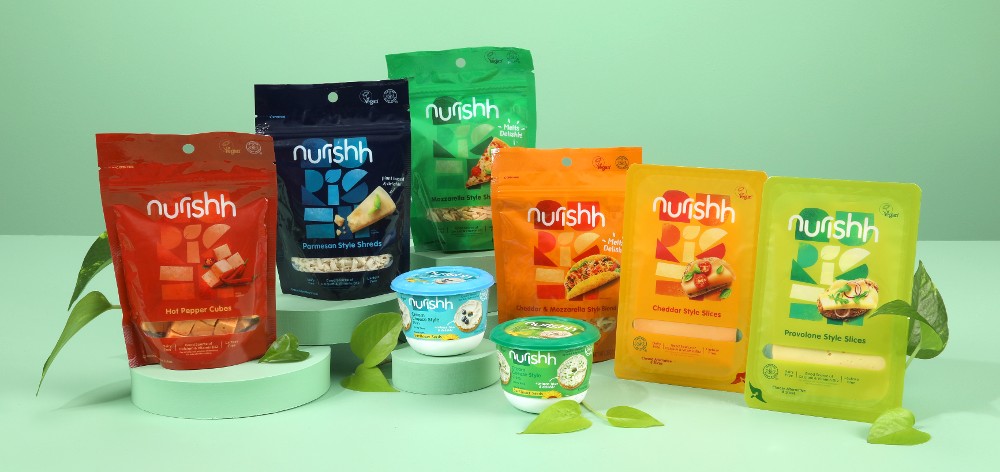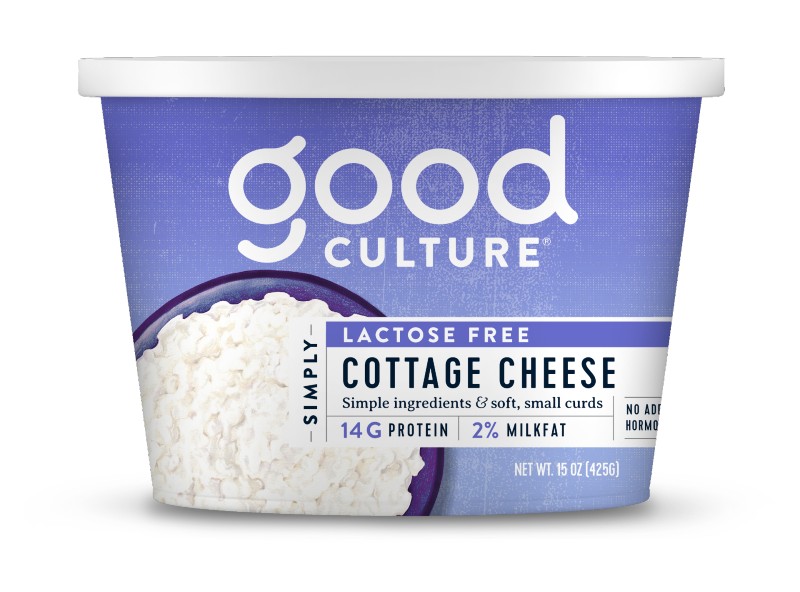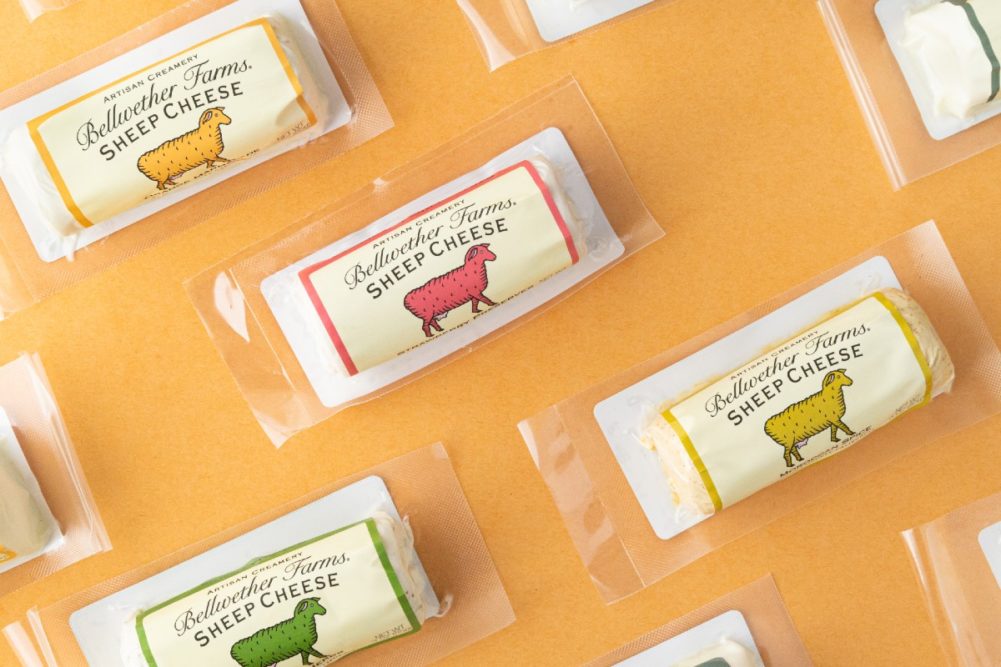While innovation in the dairy category has been impacted by the pandemic and inflation, processors have found successful innovation centers around plant-based alternatives, new formats, simple ingredient listings and formulations that meet specific dietary needs.
In this environment, the biggest opportunity for innovation in the dairy market is to formulate products for consumers who purchase both dairy and dairy-alternative products, according to a dairy flavors and ingredients report from market research firm Mintel.
Taking yogurt across categories
“Because of COVID, a lot of the innovation pipeline was stalled,” said John McGuckin, chief executive officer of Clio Snacks, Piscataway, NJ. “You didn’t have the normal cadence of introductions and opportunities to present platforms that might be somewhat unique. That was coupled with inflation and the inability to spend the level on brand development that you would have historically.”
Despite these challenges, McGuckin said successful innovation for them has been centered on challenging consumer perceptions about dairy products, and they have done that with their chocolate-covered Greek yogurt bars.
“As a new company, what you bring to market has got to be differentiated to the extent that it can be a category disruptor,” McGuckin said. “The only way you are going to get the attention of a leading retailer is to be able to demonstrate you are going to grow the category and not just be another offering in a set.”
The company’s products – which can be a snack or a meal unto themselves – have the potential to span both the dairy and grocery category and can be sold wherever there is a refrigerator, and McGuckin said this versatility has been an asset.
He said companies have been somewhat afraid to innovate because of the cost of entry, but Clio Snacks has been able to demonstrate to retailers there is little risk in carrying their products. As a result, the products have demonstrated a wide range of appeal at retail as the company’s two highest-performing customers are Whole Foods Market and Walmart.

Clio Snacks, which was first launched in 2015, is now introducing their products in a four-pack to appeal to a broader range of customers. Throughout the company’s expansion, McGuckin has found social media marketing to be an essential part of the process and believes authenticity online is integral for brands.
“Behave on social media in the same way you behave internally in the company and in the same way that supports the brand ethos,” he said.
Flexing to plant-based options
Bel Brands USA, Chicago, expanded its line of Nurishh plant-based products this spring with two new formats – cubes and cream cheese style. The line already offered shreds and slices. The company also introduced the Babybel Plant-Based line to further diversify its offerings and meet a need in the market for snack cheese choices, according to Jean Michel dos Remedios, sourcing and supplier development senior director.
Innovation often requires upgraded equipment, so the company invested in new production lines dedicated to the plant-based cheese formula when it developed Babybel Plant-Based.
“It took months to not only develop and test this equipment, but to land on a recipe that mimics the soft, smooth and creamy texture of Mini Babybel Original,” dos Remedios said.
He noted average innovation lead times are between 18 to 24 months to bring a new product from initial concept to store shelves, with Babybel Plant-Based hitting shelves a few years after first developing the idea.
Plant-based innovation will continue as the company also plans to launch The Laughing Cow Plant-Based products in 2023.
“Consumers are demanding more inclusive offerings to not only cater to all diets and restrictions, but also to offer a flexitarian approach,” dos Remedios said. “We expect this diversity in offerings will continue to be a mainstay in future innovations.”

Additionally, the company introduced culinary-inspired products from its Boursin brand – Boursin Bites Garlic & Fine Herbs and Boursin Cooking Cream Garlic & Fine Herbs.
Keeping up with consumer recipe discussions on social media and even offering some of its own versions of recipes was integral to the development of the cream product, dos Remedios said. In addition to social media as being a driver of ideas, dos Remedios said at-home cooking and entertaining is driving trends, and the company has even added a hosting resource on its Boursin website.
Bel Group, the parent company of Bel Brands USA, recently announced it is developing a line of cheese products that incorporate a cultured protein from Superbrewed Food to further efforts in biomass fermentation. The protein is made from microflora found in nature that convert plant fibers and contains all nine essential amino acids.
Driven by quality ingredients
For St. Benoit Creamery, Sonoma. Calif., the most important consideration when developing products will always be sourcing quality milk from a single herd of pasture-raised Jersey cows in Sonoma County, according to Michelle Sheely, head of sales. The company’s newest product line is its organic pot de crème desserts that she says balances an indulgent treat with quality ingredients.
“Animal welfare, sustainability, and overall better-for-you dairy needs to lead the charge when considering any new products,” Sheely said.
Similarly, Laura Chenel’s brand manager Durae Hardy said the cheesemaker sources goat milk from a select group of family farms to ensure the quality and freshness of raw products, and the company then works to enhance the flavor of that goat milk. Its newest product is the line of Everything Bagel Fresh Goat Cheese Chabis, and Hardy said the company will continue to introduce flavors based on its tradition of French cheese making combined with California terroir.
The newest offering from Marin French Cheese Co., Petaluma, Calif., is Golden Gate washed rind cheese, a product that gets its color from being hand-washed with brine multiple times throughout a 14-day aging process. Kelley Levin, marketing communications manager, said consumers want to know what they are eating so providing transparency about what goes into each product and having a short and clear ingredient list is critical.
“We look at our current offerings, we look at the market and trends to get a pulse on what our consumers are buying or looking for, and then we do an internal poll – since our employees are cheese lovers themselves – and then we start the R&D process,” Levin said.
Levin said all its products are a mix of old-world traditions and recipes coupled with California terroir. For future innovation efforts, she said the company loves to make a twist on a classic – which might mean a new variety or a re-vamp of a traditional recipe.
In the last year Bellwether Farms, Petaluma, Calif., has introduced fresh sheep cheese in five varieties – original, strawberry preserves, orange marmalade, Moroccan Spice and Sonoma herbs. The company also reformulated its A2 Organic Whole Milk Yogurt for a product line made with milk from grass-fed Jersey cows containing the easy-to-digest A2 protein.
“We first consider if the proposed new products make sense for us to make, whether they are a good fit for our brand and if they are a logical extension for one of our product lines,” owner Liam Callahan said of Bellwether Farms’ approach to innovation. “We then look at what additional equipment would be required to produce it and consider if we feel the product has a long future or if it is a short-lived trend.”
Maintaining a halo of health
Overall, food trends around simple ingredients and microbiome gut health have helped fuel growth in innovation and will continue to do so, according to Jesse Merrill, co-founder and chief executive officer of Good Culture, Irvine, Calif. He said there is increasing research linking cultured food – including his company’s cottage cheeses – to greater microbiome diversity, which can boost gut, brain and heart health while also reducing inflammation and supporting the immune system.
Good Culture launched a lactose-free line of cottage cheeses and sour creams last August to help the estimated 65% of the population who have trouble digesting lactose, and Merrill said all Good Culture innovation needs to be anchored in health, nutrition, cleanliness and taste to appeal to the community.

“Clean label products add complexity and cost, so we worked hard to develop proprietary formulations that deliver thicker and creamier products without the use of thickeners, gums or chemical preservatives,” Merrill said. “Our commitment to our consumers is real, simple ingredients, and more and more consumers are demanding that.”
In another effort to target the specific nutritional needs of consumers, Horizon Organic, Broomfield, Colo., recently introduced its Growing Years line of milk and yogurt products that was developed with pediatricians for children transitioning from breastmilk or formula to dairy milk. All the products are made with certified organic milk from pasture-raised cows, and every serving contains 50mg of DHA Omega-3 along with choline and prebiotics. The company also launched its organic dry whole milk, which is a powdered milk product designed to have a longer shelf life, toward the beginning of the pandemic.
Stonyfield Organic, Londonderry, NH, has introduced Organic YoBaby as a product that promotes self-feeding and is an easy on-the-go option. The company’s other newer products include Organic Kid Toppers and Organic High Protein Parfaits as other on-the-go options.
While introducing new products has come with challenges in recent years, companies are carving out a niche for nutritional products that meet specific needs, offer a plant-based alternative, or even span categories. According to the Mintel report, consumers are increasingly purchasing both dairy and dairy-alternative products and desire unique flavor experiences with functional benefits.

